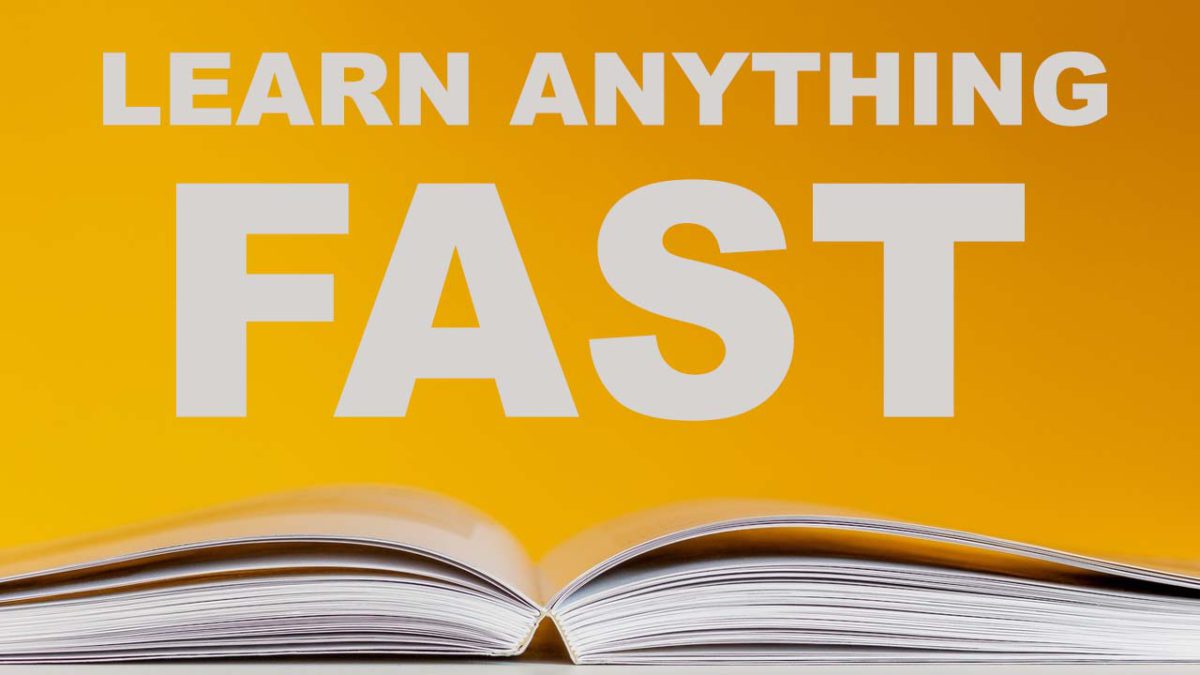How to learn anything fast

Until now, I have learned a lot of engineering stuff. No dought, I have gone through a lot of physics, math, engineering, and programming related classes; however, I also remember myself learning general knowledge from biology, chemistry, history literature, and a lot of similar classes from earlier education stages. I always divide learning into theoretical and practical subjects. For both kinds of subjects, I prefer different approaches to learn faster.
What is a theoretical subject?
I like to categorize as theoretical all subjects that you have to learn as they are. For example, you want to learn history. You have no other choice than memorizing the historical events and the dates when they happened. Of course, you can dive into archeology and try to prove certain historical events, but this is not history anymore.
In biology, you want to learn about certain plants. You have no other choice than studying them as they are and memorizing the material from the books as it is. Of course, you can then go deep inside and put them under a microscope, study the details, and then tweak the plants’ genes. You can call this action a practical experiment. However, I try to take the theoretical part as an example only. We are not talking about deep science in biology, but the general knowledge taught in schools.
In that case, you have no other choice than memorizing the entire material because there is no point in understanding a complex concept.
What is a practical subject?
For me, a practical subject is when you can learn something by doing something. For example, you can learn programming by wringing code and designing programs. Or you can learn math by solving mathematical problems. The main idea is to understand concepts and not memorize them.
Methodology for learning theoretical subjects
The best way I like to learn theoretical subjects is to memorize everything. Well, not really. How will I memorize 500 pages book in one or two weeks, or even a month or a year? There are much better ways than just memorizing things. Here is the point:
In such kind of subjects, you want to make a model of the topic in your head. Let say you are learning history. You can imagine a straight line in you hade. You can call it a timeline. In the beginning, you will set the year 0 and start from there. Well, you don’t always have to start from zero; you can also take whichever year you need for the specific era you are trying to learn about. As you go through the material, create scenes of the historical events in your head, and put them into the imaginary timeline. Of course, everything has to match the content of the book. In this way, you can visualize things and remember away easier than just memorizing words and sentences.
At the beginning of implementing this method, it might be a bit weird and hard, and if so, you can do the same by actual drawing. For example, draw a timeline into your notebook and paste images related to the events you study about or draw simple pictures that recall the material you read from the book. Besides these pictures, you can, of course, take notes so that you can recall faster and easier later.
The same you can do with other subjects too. If you learn about specific plants in biology, you can imagine the real plant in your head instead of the timeline in history. If you don’t know how the plant looks like, look for pictures on the internet. For every fact that you read about, put a mark in your imaginary plant in your head. Again, if this is hard to do initially, download a real picture of the plant and put notes directly on the picture.
Taking notes is an excellent idea in both cases since you can later recall the material more straightforward. However, the techniques I describe here are practical for long term memory but also helpful for exams.
Methodology for learning practical subjects
Practice, practice, practice! That’s it. Seriously, that’s it. I meant stuff that you learn, practice them. That’s how you will understand concepts.
Let’s take an example. Say you want to study math. You take the math book and read. Everything appears to be obvious at first glance, right? OK, close the book and try solving a problem. And here you are, you thought you know it, but not really.
Man, this is math. If you do not practice, you cannot learn it quickly. The idea here is to understand the concept. That’s what matters in math. You don’t want to memorize formulas, but understand concepts so you can derive those formulas. For example, 2 x 5 = 10. If you remember this equation, you will always know the answer. But if you understand the concept of multiplication, you can always multiply any numbers. And believe me, you cannot memorize all possible cases of multiplication.
The same applies, for example, to programming. You want to study the concept of programming, and afterward, you can write code in any programming language. Of course, you need to memorize particular syntax expressions or keywords for programming in specific languages, but this is only for convenience. You can never be a programmer if you know even all keywords and programming expressions, but you don’t know how to use them.
Summary
If you are struggling with learning fast, this article might be a peace of mind and help you do better and be more efficient in your learning process. These are methods that I have practiced for years, and this article gives you a glance at how I use to study anything. If you haven’t considered this way of studying, I encourage you to try at least some time and come back here to leave feedback. I am glad to hear people found this article useful.